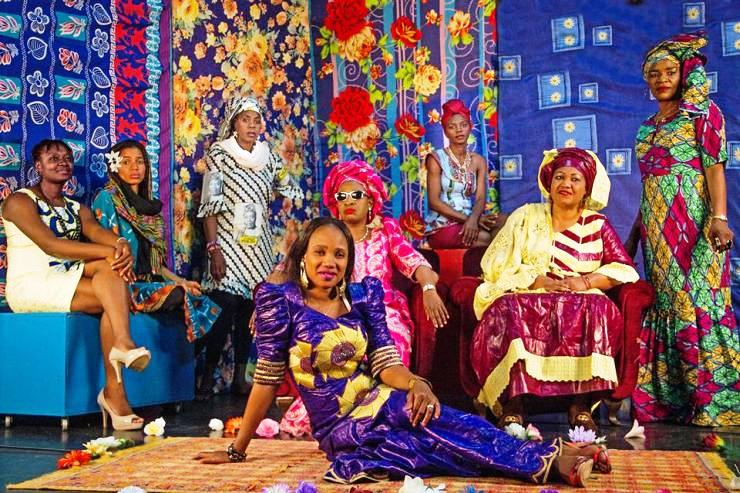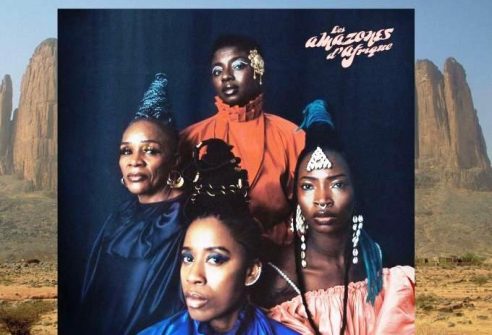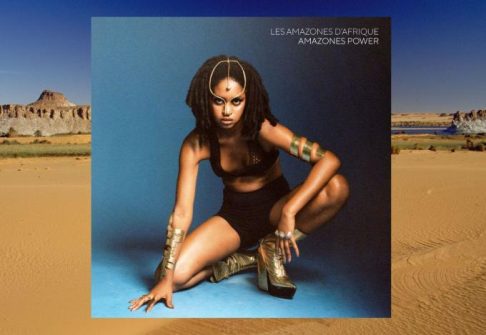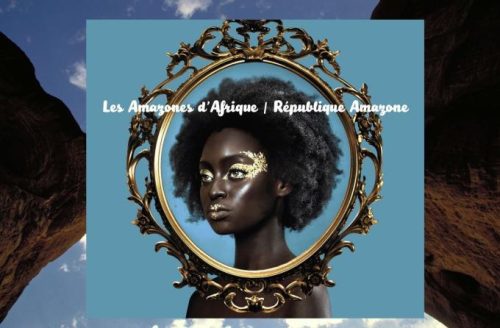Mali. Ten years of the Amazons of music.

The music of the Amazones d’Afrique, a collective of female musicians started in Mali in 2014, is powerful, blending wide-ranging melodies, pan-African styles, gritty pop and an exuberant stage presence.
It is impossible to stop listening to them, not to be overwhelmed by the pop rhythms, by the electro-futuristic sounds combined with the traditional. But above all, it is impossible to remain indifferent to the message that their music and their voices carry on their continent and throughout the world. They are Les Amazones d’Afrique who celebrate their tenth anniversary this year. A group – or rather a supergroup – that has become an icon of the feminist movement in African music. A fusion of established artists and young talents of the new generation who use this art form to help women gain awareness and fight real social evils: early marriage, female genital mutilation, inequality and gender violence.

The year of birth of this all-female collective is 2014, the place is Bamako, Mali. Here, three Malian music stars and social change activists, Mamani Keïta, Oumou Sangaré and Mariam Doumbia, gave life to the first nucleus of the Amazones.
Since then, the movement has continued to expand to include many other African and diaspora artists. A celebration of culture and identity that passes through mother tongues. The songs, in fact, are a melange of Fon, Ewe, Pidgin, Mande, Lingala, Bambara, Yoruba, and Bede words because this is precisely what expanding means for Les Amazones: speaking to an ever-wider world and at the same time giving freedom of expression to African voices and women.
Yes, for the sake of clarity: the name of the group refers to the Amazons of Dahomey, a female military regiment that operated from the 17th to the 19th century in what is now Benin.
Another interesting thing is that the composition of this supergroup is constantly evolving and so many others have been added to the names of the founders and participants in the project in the early years. All exceptional figures of the West African female musical scene.

In 2015, in Marseille, their first concert and in the first song published – I play the kora which will be included in the first album – their manifesto: I’m your mother/Love me/I’m your sister/Love me/I’m your wife/You do not have the right to beat me/We women, all women/We want to be respected. We remember, among other things, that playing the kora, an instrument native to West Africa, was traditionally denied to women. Then it was the turn of the 2016 concert in the United Kingdom, while their message was now spreading very quickly. A rallying cry
for women’s rights.
In a recent interview on TV5 Monde Fafa Ruffino said: “We are not a movement against men, but our aim is to denounce the violence perpetrated against women and motivate them so that they make mothers, grandmothers and fathers understand that young women are not commodities; let’s talk for example about forced marriages. But another important fight is the one against excisions. We are addressing the young generations, who will have to decide the future. Young people must become aware that it is up to them to take control of their lives.” And again: “Women are strong, they have power, and the power we have is scary. But this is not a revolution, it is an awareness.” Music as a means of empowerment, therefore, as a celebration of female strength. And as a vehicle for change and unity.

Their first album, “République Amazone” (2017), saw the contribution of highly renowned artists, such as the Beninese Angélique Kidjo and the Nigerian singer-songwriter Nneka. In 2020, “Amazones Power” was released, in which the voices of the founder, Mamani Keïta, and the rising star of Mali, Rokia Koné, appear alongside a younger generation of African singers. Musow Danse (2024) is their third album, with electrofuturistic sounds. All published by Real World – a label founded by Peter Gabriel to promote ethnic and world music. (Les Amazones d’Afrique during the recording of their album République Amazone in Bamako, Mali in 2017. CC BY-SA 4.0/ Valerie Marlot – Real World Records
Antonella Sinopoli



